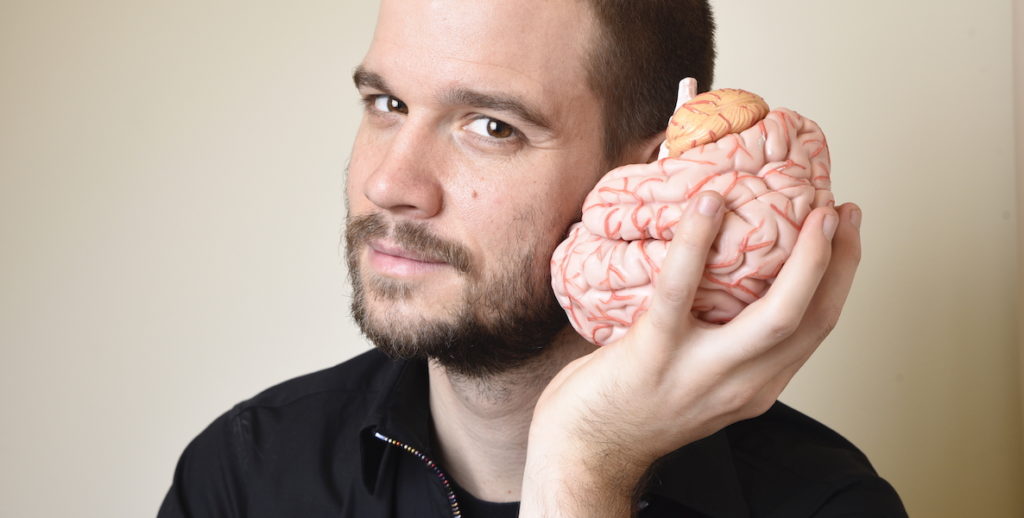In his work with thousands of patients with Alzheimer’s dementia, the late neurologist and beloved author Oliver Sacks noted one constant: As varied as the manifestations of dementia may be, all patients seem to respond, positively, to music. Today, healthcare providers recognize music as a meaningful aspect of dementia therapy.
Called Tangles in Time, the program has, for the last two years, brought together a small community of patients, caregivers, and students of brain disease and disorders, to develop and produce a performance for the public.
The two-year program will culminate this weekend in three performances at the stunning Philadelphia Episcopal Cathedral in West Philly. The shows will feature participants telling their deeply personal stories through spoken words and with the use of original music, video, and other media.
“It’s about identity and relationships, and how those might change, or not change, over time,” Cui says. “I really feel like everyone will discover something that resonates with them.”
Tangles in Time has its roots in the medical school’s mission to cultivate in its healthcare providers a deep sense of empathy. “Medicine is historically part science and part art. It’s a lot of technical knowledge and a lot of science, but ultimately it’s about treating and hopefully facilitating the healing of a human being,” says Megan Voeller, director of Humanities and co-director of Scholarly Inquiry-Humanities at Jefferson. Medical education, Voeller feels, “has perennially struggled to teach the human parts of care along with the science and the technical knowledge.”
There’s research suggesting that the arts can help, and today many medical schools offer electives in the humanities, and studies have shown the positive impact such courses can have on reducing burnout among healthcare workers, a notoriously burnt-out population. Jefferson has emphatically taken this call to heart; prior to Tangles in Time, for example, it partnered with the nonprofit ARTZ Philadelphia to pair medical students with dementia patients or their caregivers for a series of group museum visits and conversation, as a means of forging intimate connections with patients, interactions that could go beyond anatomy labs or textbook memorization.
For Tangles in Time, the medical school sought out Theatre of Witness for its history of bringing people’s lived experiences to the stage. Teya Sepinuk founded the organization 30 years ago, and says she was drawn to this particular project with Jefferson because of its humanity, its potential to connect people of all walks of life.
“Medicine is historically part science and part art. It’s a lot of technical knowledge and a lot of science, but ultimately it’s about treating and hopefully facilitating the healing of a human being,” says Voeller.
“The people who are involved in this”—there are 12 cast members, 18 artists, plus a host of vendors who helped with elements like marketing materials—“are all doing this because they so believe in the power of sharing these stories, stories that are often so painful. Embedded in all of them is that they’re all stories of love of some kind or another,” Sepinuk says. There’s the deep caring that the caregivers are providing or have provided for their loved ones, and the love and acceptance showered on the people living with dementia by everyone in the program.
Salena Cui, a third-year medical student who’s involved with the production, says that anyone can find meaning in the performance.
“Yes, a lot of it is about dementia and Alzheimer’s and memory, but the more unifying theme is broader than that: It’s about identity and relationships, and how those might change, or not change, over time,” she says. “I really feel like everyone will discover something that resonates with them.”

